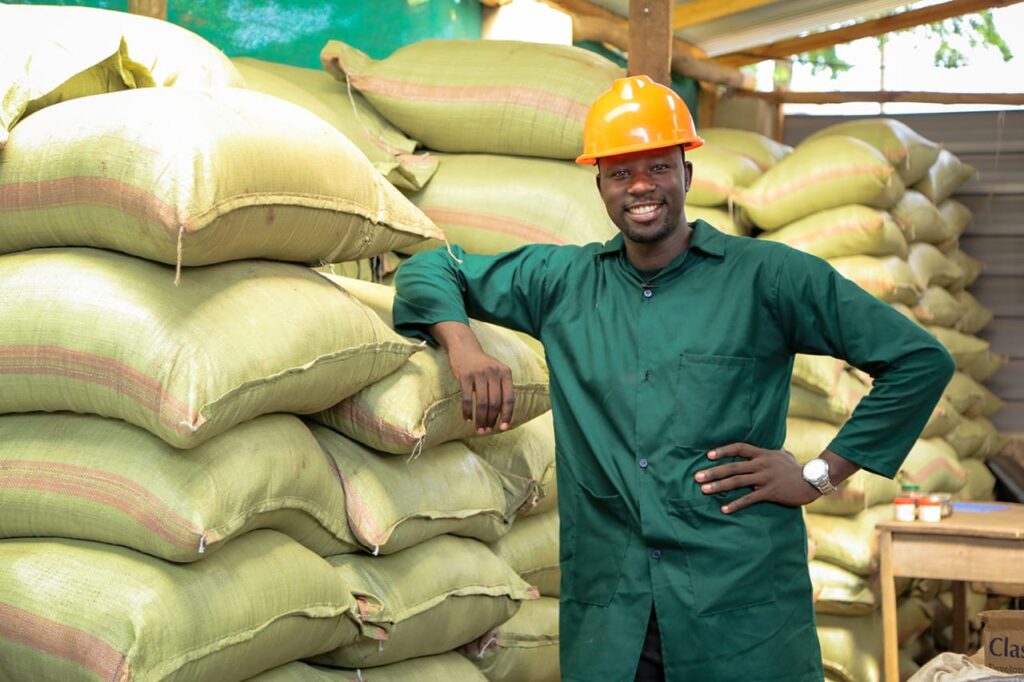SIANI has contributed to the campaign and publication Matskiftet, the Food Shift, together with the NGOs The Hunger Project and Reformaten. The campaign kicks off in relation to World Food Day 2024 with 12 examples of innovative food solutions, of which four cases have been submitted by SIANI. Here you can learn more about them.
The Food Shift shows us that change is possible – in fact it is already happening, though not fast enough. The purpose of the campaign is to showcase good ideas for a more sustainable food systems and inspire others to take action in their local contexts. SIANI decided to highlight four examples:
Flies and compost to boost harvests
Martin Tenywa at Ento Organic Farm in Uganda has improved his harvests by using compost from households in Kampala. The mix is further enhanced with larvae from black soldier flies. The innovative approach simultaneously improves food security, livelihoods and waste collection.
A restaurant sharing food knowledge
Sofia Cavalleri and Amabile Cortiglia started Ristolab s.r.l. as a restaurant-cum-laboratory to strengthen local food culture in an Italian region known for its rich biodiversity and food traditions. Guests get to enjoy tasty dishes as well as new insights that help them understand where the food comes from.
Cookbooks with insects
Chinhoyi University of Technology in Zimbabwe is championing the region’s traditional use of insects as a nutrious ingredient in various dishes. After a drop in popularity, interest in cooking insects is again growing, partly thanks to two cookbooks. The initiative is part of the programme AgriFoSe2030, led by the Swedish University of Agricultural Sciences with Stockholm Environment Institute among the partners.
Sourcing wild foods
The Non-Timber Forest Products Exchange Program (NTFP-EP) works to increase knowledge about “wild foods”, including edible plants, mushrooms and animals that are not domesticated. They have previously been a SIANI expert group and shared insights from indigenous peoples in Southeast Asia with extensive traditional knowledge about uncultivated foods.
The four examples, and eight additional ideas, are presented in the Swedish-language publication The Food Shift – Matskiftet – SIANI and will be discussed at an event in Stockholm on 16 October. Stay tuned for updates.
Click here to learn more and register for the event Matskiftet.
